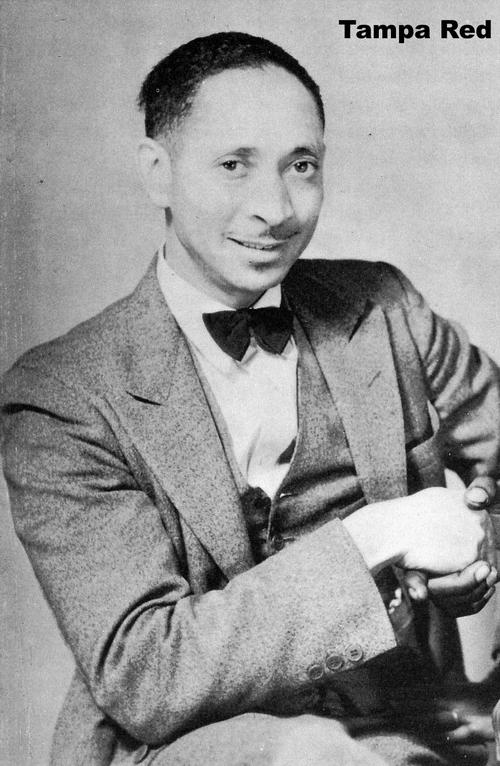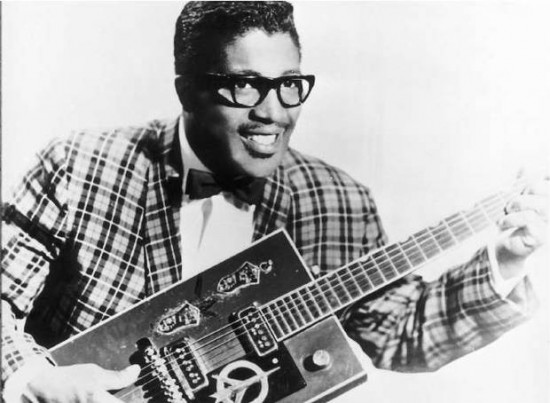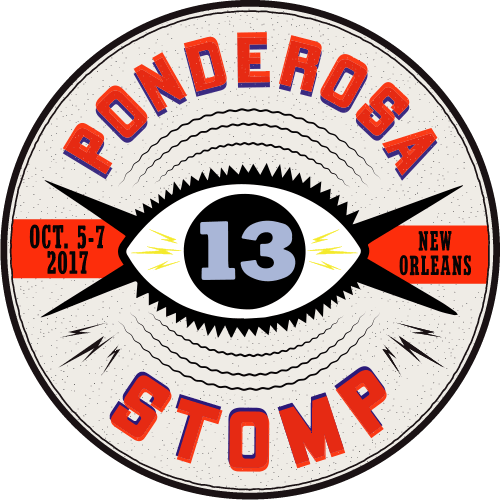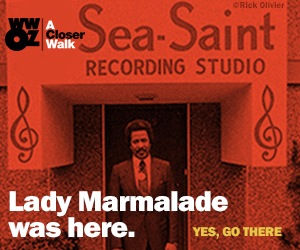WRITTEN BY BILL DAHL
Chicago’s first homegrown blues-harmonica star has never made a secret of his primary musical hero’s identity. Billy Boy Arnold learned his earliest licks from the great John Lee “Sonny Boy” Williamson himself, just before Williamson’s June 1, 1948, murder. He’s never forgotten his idol’s kindness the two times he met him.
Born Sept. 16, 1935, in the Windy City, Arnold was a fan of the music from an uncommonly young age. “I got involved with listening to blues when I was about 5, 6 years old. And I liked that music,” he said. “I never thought of being a musician at the time. In fact, I heard ‘Jelly Roll Baker’ when I was 7 years old. I heard a lady in the building play the record, and I didn’t know who the artist was. I didn’t go into that part. But I knew I liked that song. I think it came out in 1942. I was about 7 then. That was a good experience there.”
“WE WANT TO SEE SONNY BOY”
His fascination with the genre was just beginning. Billy talked his cousin and a pal into stopping by Williamson’s pad at 3226 S. Giles one weekend afternoon. “I met Sonny Boy when I was 12 years old,” Arnold said. “I heard a Sonny Boy record, and it just fascinated me, the way he played the harmonica. I found that he lived in Chicago, so I got his address and went to his home.
“We never seen the guy, didn’t know what he looked like,” said Billy. “So we rung the bell. And this well-dressed guy came down to the door, and he said, ‘Can I help you?’ I said, ‘We want to see Sonny Boy!’ He said, ‘This is Sonny Boy.’ I said, ‘We want to hear you play your harmonica!’ He said, ‘Come on up. I’m proud to have you all!’
“I said, ‘Sonny Boy, how do you make the harmonica say, “Wow-wow-wow?”’ So he said, ‘You have to choke it.’ So I said, ‘Show me how you choke it.’ I had a lot of old, funny-looking harmonicas I’d bought, little dime-store harps and stuff. I said, ‘Sonny Boy, let me see what kind of a harmonica you play!’ So he had two harmonicas in his inside suit pocket, and they were Marine Bands. So I saw what he played, and they looked like they were well-worn, like they had been through it, you know. So he demonstrated to show me how to choke the harmonica. I told him, ‘I said, ‘I can sing just like you, with your records!’ So he put his record on. And I was singing and playing along. I knew the lyrics. And he got a big kick out of me knowing the song and everything.”
Arnold remains an expert on Sonny Boy’s voluminous Bluebird Records discography. Take the romping “Polly Put Your Kettle On.” “That was the first record I bought by Sonny Boy. That was on the flip side of a song called ‘Lacey Belle,’” he said. “I always thought that was a novelty type of song, but I thought it was interesting.” Or the swinging “Better Cut That Out.” “That’s the last song that he ever recorded,” noted Billy.
“‘Mellow Chick Swing’ was one that got me into wanting to play the harmonica. That solo at the end of the song was so dynamic to me. I had never heard nobody do that on the harmonica, so it just fascinated me. And I didn’t want to be professional; I just thought I’d like to see if I could do that,” he said. “Every time I’d hear another record by him, I would get more and more interested in learning how to do that.”
“I had so many favorites,” Arnold continued. “‘Love Me Baby’ was one of my favorites. So many — ‘Good Morning Little Schoolgirl.’ ‘Sugar Gal,’ his current record that was out when he got killed. So I had so many of ‘em. I just liked about all of his material — ‘Elevator Woman,’ ‘Sonny Boy Jump,’ all those things.”
“THE LAST TIME I SAW HIM”
Billy arrived ready for action the next time he crossed paths with Williamson. “I bought a brand-new Marine Band the second time I went by his house. And he said, ‘This cost you a lot of money, didn’t it?’ I said, ‘$2.50.’ He said, ‘Where did you get the money?’ I said, ‘Well, I work at my uncle’s store on Saturday, and I sell newspapers.’ And he told his friend, ‘See? He sells papers and buys records and harmonicas!’ So he told us, ‘Don’t steal. If you ever need show fare, come and see me. I’ll give it to you,’” Arnold said. “It was getting late, and he said, ‘Well, I got to go to work.’ He called a cab. And the last time I saw him, he was getting in the cab with his amplifier. He played amplified harmonica in the clubs.
“So two weeks later we went back by there, and I rung the bell, me and my cousin. And the lady on the first floor said, ‘Who you looking for?’ We said, ‘We’re looking for Sonny Boy.’ She said, ‘Haven’t you heard? He got killed! They crushed his brain.’ And she said his wife took his body back to Jackson, Tenn., and she’d be back in two weeks. So I came back, and she had a couple of people there. She said, ‘This is the boy that was taking lessons from Sonny Boy.’ And she said, ‘Oh, he had your harmonica. We looked for you to come back. Let me pay you.’ I said, ‘No, I don’t want you to pay me. He was my friend.’
“I had no intention of stopping, even after he died. So I just kept on fooling around with it. Then a couple of years later, Little Walter started recording with Muddy Waters, and then I heard this dynamic harmonica again by another superb guy,” he said. “When Sonny Boy died, there was a gap. There was no great harmonica playing on record. And then in 1951, I think it was, when Little Walter recorded with Muddy Waters and Jimmy Rogers. Little Walter would be the next guy in line.”
Sonny Boy wasn’t the only Bluebird-era star Arnold encountered as a lad. The venerable Tampa Red — he of the kazoo, bawdy lyrics, and immaculate slide-guitar technique — was another luminary that Billy viewed up close and personal. “I met him when I was 14 years old. But I never sung any of his material,” Arnold said. “He was kind of a conservative-type of a guy. Kind of shy-like. He wasn’t outgoing, friendly. He was a very sort of conservative and reserved type of person. What a great guitar player. He was a prolific songwriter and a great musician.
“I went to his house when I was about 14, 13 or 14, and had a brief encounter with him there,” he said. “Then I saw him again with Blind John Davis on 35th and State. I was with Blind John, and Tampa was in the pool room. We passed by. He didn’t know me, you know, I was only a kid, about 16, 17. He came out and said, ‘John!’ John turned around and said, ‘Oh, Tampa!’ Tampa lived right around the corner. So they talked awhile, you know.
“Then he did play a place, it was a place over on Lake Street. It was a big club. I can’t think of the name of it. It was around Ogden and Lake, or somewhere around there. And they booked him over there. He called hisself the artist. His material was really outdated for the audiences at that time, and he only sung his own songs. So he held on to — well, he was a big star, you know, one of the biggest. So he still had that feeling that he was still the great Tampa Red, but the audience wasn’t aware of it. ‘Cause the people that listened to Tampa had long been gone, or wasn’t frequenting the clubs. I didn’t get a chance to see him, but Blind John played with him over there. And the gig didn’t last long because he wasn’t playing any contemporary blues.”
“WE GAVE YOU A NEW NAME!”
By 1953, the teenage Arnold was ready to make his own record. Through pianist Blind John Davis, he hooked up with the tiny Cool label, run by blues singer Peach Tree Logan and future blues and jazz guitarist Pete Cosey’s mother, Coleanne Cosey. Davis wouldn’t be on the date. “He said, ‘Don’t forget to ask for some advance royalties!’” said Billy. “So I said, ‘What about some advance royalties?’ They said, ‘Well, who told you that?’ I said, ‘Blind John!’ So they got mad at John. But they got a group called Bob Carter’s Orchestra.” Arnold cut “I Ain’t Got No Money” and “Hello Stranger” with Carter’s crew, and when the 78 hit the streets, he was surprised to learn he had a professional moniker.
“They said, ‘We gave you a new name!’” Billy remembered. “I said, ‘Yeah?’ He said, ‘Billy Boy. Billy ‘Boy’ Arnold!’” Sixty-two years later, that’s still what he answers to professionally.
Billy had previously met guitarist Ellas McDaniel at a 63rd Street restaurant in 1951. “I met Bo Diddley when I was 15 years old. We were playing together on the street corners,” he said. “He had his own style. He had that beat going all the time.” Along with guitarist Jody Williams and a washtub player, they honed their sound on the mean streets of Chicago.
“We made enough money out there on the corners to buy an amplifier for me and Ellas,” said Williams. “You can make quite a few dollars out there, just nickels and dimes and quarters. Put the hat down there. Billy, he couldn’t outplay the amplifier, so what he did, he got one of those mason fruit jars and started blowin’ through that, gettin’ a little bigger sound.”
One day Billy suggested they find their way into a recording studio. “We were shopping around,” said Arnold. “Bo had a home recorder, and we made a little dub. I suggested to Bo, because I had already made my record for Cool, ‘Let’s make some records!’ He said, ‘OK.’
“We went to United and States Records, and they heard what we was doing. But we didn’t have a song called ‘Bo Diddley.’ It was called ‘Hey Noxema,’ and they were singing sort of vulgar lyrics in it,” said Arnold. “Then we went to Vee-Jay, and the secretary was on her way to lunch. And she said, ‘What you guys want?’ I said, ‘We’ve got a dub.’ She put the dub on and listened one second and said, ‘I don’t like that!’ And walked out. So Chess Records was right across the street, and I had auditioned for Phil Chess, so he knew me.”

Phil invited Bo and the band to come back the next day with their gear to audition for his brother, which they did. “Leonard was walking around listening,” said Billy. “He wasn’t saying nothing, just walking around in a circle listening. So he told me, ‘Well, let’s have several rehearsals, and then I’ll take you down to Universal, and we’ll record it!’
“WHY DON’T YOU SAY ‘BO DIDDLEY’?”
“We were sitting there recording, and Bo was singing this ‘Hey Noxema’ thing. And Leonard said, ‘Wait a minute, no.’ He loved that beat,” said Billy. “He said, ‘Boy, we’ve got to get some lyrics.’” Recalling the name of a comedian at the Indiana Theater (where the band hung out on Saturday nights to catch the place’s famous Midnight Rambles), Arnold suggested, “‘Why don’t you say “Bo Diddley”?’ And Leonard Chess said, ‘Bo Diddley? What does that mean? I don’t know, I don’t want to put something out that would offend the black audience.’ I said, ‘No, it just means a little comical bowlegged guy.’”
There was no room for harmonica on “Bo Diddley.” The crashing guitars, thundering drums, and Jerome Green’s maracas offered a thick enough brew without it. But Billy played on the equally seminal flip, “I’m A Man,” the precursor to Muddy Waters’ “Manish Boy.” “We thought the record was going to come out (as by) Ellas McDaniel & the Hipsters, ‘cause that was our name,” said Arnold. “When the record came out two weeks later, I was surprised. It was ‘Bo Diddley’ by Bo Diddley!”
Although Billy cut two vocals of his own at the same March 2, 1955, session (“Sweet On You Baby” and “You Got To Love Me”), Chess wasn’t showing any overt interest in his services as a front man. “Bo Diddley had told me that Leonard Chess didn’t like me,” he said. “So I said, ‘Well, if he don’t like me, then I’ll go to another record company and record my stuff. Forget it!’” And that’s precisely what Billy did.
“THE FIRST ELECTRIC BASS I EVER SEEN”
In preparation for Bo’s next Chess date that spring, Arnold had penned “Diddy Diddy Dum Dum” for his guitar-wielding pal. “I went to Vee-Jay, and I told them I had a song,” said Arnold. “And they said, ‘Well, change the lyric.’ And I wrote ‘I Wish You Would’ right on the spot. I got Jody Williams on guitar, and Vee-Jay had Earl Phillips on drums, and they had Milton Rector on electric bass. That was the first electric bass I ever seen in Chicago.” Two-fisted pianist Henry Gray was on the swaggering flip “I Was Fooled,” penned by Williams.” We was up and down 47th Street, and that’s mentioned in the song,” said Jody.
https://www.youtube.com/watch?v=QKGQyt1ewKg
Arnold did show up for Bo’s encore date, where he was in for a surprise regarding the future of “Diddy Diddy Dum Dum.” “Bo Diddley started trying to play the song, and Leonard said, ‘Let Billy sing it!’” said Arnold. “So I said, ‘Well, no, I can’t even do it, because I already recorded for Vee-Jay.’” The Moonglows rewrote the song’s lyrics for Bo as “Diddley Daddy,” with Chess’ top harmonica star adding sparkling backing. “Walter was just there. He didn’t have any harps or amps,” said Billy. “So I let him use mine to play on the ‘Diddley Daddy’ track.” Billy’s Vee-Jay contract didn’t stop him from playing on another gem Bo waxed that day, the hypnotic “She’s Fine, She’s Mine.”
The clattering rocker “I Wish You Would” made some regional noise for Billy Boy (Vee-Jay billed him on the single without a last name, and would continue to do so throughout his stay). He was back in the studio that October for Vee-Jay, cutting the self-penned houserocker “Don’t Stay Out All Night,” which came slathered in Jody’s stinging guitar. “I got that idea from (Rosco Gordon’s) ‘No More Doggin’,” he said. “But the lyrics are totally mine.” The label paired it with Billy’s tough rendition of Vee-Jay A&R man Calvin Carter’s “I Ain’t Got You.” “That was (Vee-Jay A&R man) Calvin Carter’s idea. Calvin Carter actually wrote that,” said Billy. “They recorded it on Jimmy Reed, but they didn’t like Jimmy Reed’s delivery on it.” Close to a decade later, the Yardbirds revived “I Ain’t Got You” as well as “I Wish You Would,” bringing both anthems into the British Invasion vortex in 1964.
“I’m the only one that had it out on records, and that’s where all the guys in Europe like Eric Clapton and them, they got that from my record,” said Arnold. “It was the greatest compliment I could receive, that somebody would want to do your material. I didn’t feel they were stealing my material. My feeling was they thought enough of it to record it, and I thought well of them for doing it. I was proud of it.” Goldblatt’s department store got a nice name-check when Billy sang “I Ain’t Got You” for Vee-Jay (Reed too, for that matter), but that mention fell by the wayside when the Yardbirds revived the rocker since Goldblatt’s had no U.K. stores.
“HE NEEDED A GUITAR PLAYER”
The other pair of titles from the October ‘55 session were coupled as Billy’s third Vee-Jay platter. The harpist penned the ominous rumbler “Here’s My Picture,” Gray rolling the ivories with a vengeance for two choruses midway through, while its B-side “You’ve Got Me Wrong” rolled along at a tough mid-tempo clip, Billy’s youthful vocal slicing and dicing with impunity. Vee-Jay didn’t bring Arnold back to the studio for over a year, and when he returned in November of ‘56, Sylvester Thompson, later to find stardom as Syl Johnson, was installed as Billy’s new lead axeman (Gray remained on keys). It was likely Syl’s first time in a recording studio. “He needed a guitar player,” said Johnson.

The only single to emerge from the date twinned the insistent Arnold original “My Heart Is Crying” with one the harpist cooked up with Syl, “Kissing At Midnight.” Its clippity-clop guitar figure was borrowed by Magic Sam for his epic instrumental “Lookin’ Good,” but Syl had picked it up back in his home state of Mississippi as a lad. “That’s called ‘Dealin’ With The Devil’ right there,” said Syl. “I played it for Billy Boy, and he wrote a song to it called ‘Kissin’ At Midnight.’” Two more titles committed to tape that day, “How Come You Leave Heaven” and “Heartache And Trouble,” were vaulted and remain so to this day.
Vee-Jay gave the young harp man one more try in September of ‘57. Syl was all over his axe on the modal stomp “Prisoner’s Plea,” Arnold contributing a particularly compelling vocal. The distinctive groove and laser-beam harp lick that Billy utilized for “I Wish You Would” made a comeback on the flip, “Rockin’ Itis,” which Calvin Carter had a hand in writing. “He said, ‘Well, let’s get something sort of like on the ‘I Wish You Would’ kick, so he came up with that,” said Arnold. The relentless shuffle “No No No No No” and “Every Day, Every Night,” again built around Syl’s galloping guitar riff, went unissued but eventually turned up on a Charly LP.
Chicago’s live blues scene was at its zenith when young Billy was tearing it up on Vee-Jay. “There were a lot of clubs all over the South Side,” he said. “My favorite place was Sylvio’s. I played the original Sylvio’s at Lake and Oakley, when they had three continuous bands. They had Muddy Waters, Howlin’ Wolf, and my band.” The circuit was changing by 1963, when Arnold joined pianist Johnny Jones on the North Side gig at a basement coffeehouse called the Fickle Pickle. Norman Dayron was on hand to capture the live festivities on tape, and Alligator eventually issued the results on an album, Billy Boy singing four numbers on the set.
“HOW ABOUT BILLY BOY ARNOLD?”
At the end of 1963, Arnold recruited his brother Jerome on bass (who would go on to join the Paul Butterfield Blues Band), guitarist Mighty Joe Young, drummer Junior Blackmon, and pianist Lafayette Leake to back him throughout his debut Prestige album “More Blues on the South Side” for producer Sam Charters. “This guy came to Chicago looking for someone to record,” he said. “Bob Koester said, ‘How about Billy Boy Arnold?’”
The set’s lead track, “School Time,” was chosen for single release as well. It was reminiscent of the Vee-Jay days, as were its driving flip “You’re My Baby” and the LP-only stormers “Oh Baby,” “I Love Only You,” and “Evaleena.” Like Little Walter over on Checker, Billy was now blowing sans amplification (best illustrated on the blazing instrumental “Billy Boy’s Blues”); a catchy “You Don’t Love Me No More” sported a rock and rollish edge. Covers of then-recent obscurities by Junior Parker, Jimmy Reed, and B.B. King plus a Sonny Boy homage (“You Better Cut That Out”) also distinguished a very impressive debut set.
Arnold’s Prestige album predated Junior Wells’ celebrated Delmark LP “Hoodoo Man Blues” by a considerable margin, yet Billy receives scant credit for what may well have been the first freshly recorded electric Chicago blues album ever (as opposed to a compilation of past singles, of which there were many). “That whole session was written in two days. There wasn’t a lot of work put into it, but a couple of good things came out of it,” said Billy, adding that Prestige “wasn’t into singles. They were into albums.”
As the demand for live blues shifted, Arnold kept pace. “I was one of the first bands that played on the North Side, at Big John’s. This was in ‘65, something like that,” he said. “That’s when blues first hit the North Side, in the ‘60s.”
“YOU FEEL LIKE YOU’RE A BIG STAR”
Session opportunities got sparser: a couple for Pete Welding’s Testament label in 1966 that mostly stayed on the shelf, a 1970 album that came out overseas. Arnold worked as a bus driver, a truant officer, and a state parole officer to pay the bills. Eventually he hit his second wind, touring Europe and doing the occasional overseas recording project. “When you go to Europe, you feel like you’re a big star. Everybody knows everything about you, the first records you made, and little children know your name,” he marveled. “I mean, that’s like a household word over there, about blues artists. You’re just well-received. There’s a lot of work over there.”
Finally, in 1993, Billy released his full-fledged comeback set on Alligator with the aptly titled album “Back Where I Belong.” Produced in Los Angeles by Randy Chortkoff (musicians included guitarist Rick Holmstrom and drummer Jimi Bott), the disc mixed remakes of his Vee-Jay classics with fresh material spotlighting Arnold’s still-youthful vocal delivery and muscular harp blowing. Alligator also issued Billy’s 1995 encore “Eldorado Cadillac,” this time co-produced by label boss Bruce Iglauer, Scott Dirks, and Arnold in Chicago with guitarists Bob Margolin and James Wheeler among the participants.
More recently, Arnold has cut loving tributes to two of his blues favorites for Electro-Fi Records. 2008’s “Billy Boy Sings Sonny Boy” marked his first full-length dip into Williamson’s vast catalog. “It was something I always wanted to do, but I never thought it would materialize, because you have to get a record company that’s interested in it,” said Arnold, adding the concept was Electro-Fi boss Andrew Galloway’s.
Then in 2012, Electro-Fi gave us “Billy Boy Arnold Sings Big Bill Broonzy.” As with Sonny Boy and Tampa, the harpist witnessed the legendary Broonzy in the flesh. “He was a different personality,” said Billy. “He was an outgoing, assertive type of guy, real friendly, and he knew how to greet and meet people.”
The kind inspiration that Sonny Boy bestowed upon an idolizing lad sent Billy Boy Arnold on a well-spent lifetime of playing blues harmonica. That odyssey will bring him to this year’s Stomp. “The blues came to where I thought it would come to. Everybody. All people. It didn’t make no difference what color you were, or race,” Arnold said. “Not everybody, but there would be a lot of people who would like the blues like I did. And they didn’t have to be no certain nationality. And now the blues is known all around the world.”
Catch Billy Boy Arnold playing live at the 2015 Ponderosa Stomp on Oct. 3 at Rock ‘N’ Bowl. Get your tickets here!










One thought on “Billy Boy Arnold: Chicago Blues Harmonica Boss To Blow The Roof Off The 2015 Ponderosa Stomp”